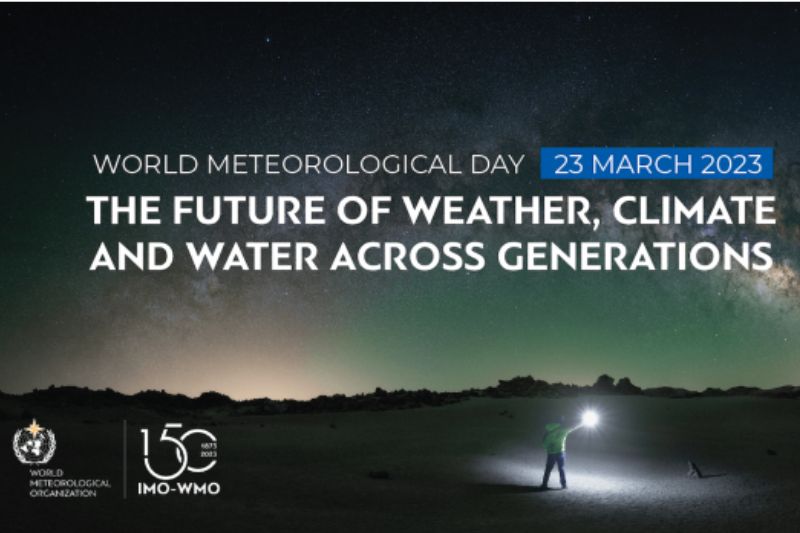World Meteorological Day
"The Future of Weather, Climate and Water Across Generations" is theme for 2023

"The Future of Weather, Climate and Water Across Generations" is the theme that the United Nations World Meteorological Organisation (WMO) chose this year to mark World Meteorological Day, occurring on 23 March since 1961.
By choosing this theme in the 150th anniversary year since the birth of the International Meteorological Organisation, precursor of today's World Meteorological Organisation, founded in 1950 after the birth of the United Nations. It aims to highlight past achievements, current progress and future prospects - from telegraphs to supercomputers to space technology - highlighting how international cooperation has been essential from 1873 to date and how it should also guide the work of today's and tomorrow's generations, becoming aware of the ongoing climate crisis.
On March 20th, the Intergovernmental Panel on Climate Change-IPCC (the scientific forum formed by the World Meteorological Organisation and the United Nations Environment Programme) published its Synthesis Report (SYR6), which encompasses the work done during the Sixth Assessment Cycle on climate change.
In the document, the experts clearly underlined the strong connection between emissions from human activity and global warming, which in a century has been 1.1°C above pre-industrial levels. A situation that has resulted in more frequent and more intense extreme weather events - from increasingly pronounced and prolonged heat waves, to the coexistence of severe droughts and rainfall concentrated in violent events, to more intense or long-lasting storms both in the tropics and in our latitudes, increasingly numerous and extensive fires - which, together with the other consequences of global warming, such as melting glaciers, altered atmospheric and oceanic circulation and rising sea levels, are causing increasingly dangerous impacts on nature and people in every region of the world.
The good news, the IPCC experts write, is that the last century has also been one of rapid scientific and technological progresses that greatly improved the understanding, monitoring and forecasting of weather events and their impacts on the environment (such as landslides, mudslides, floods, water reserves available). Big data are more freely exchanged among an ever-growing community of experts who have, at the same time, new tools at their disposal, including machine learning and artificial intelligence.
In this path, there is also the emergence and growth of Civil Protection systems, with more extensive and intense attention towards weather and hydrological risk forecasting and prevention activities, which are increasingly crucial in the age of climate crisis. According to the WMO Atlas of Mortality and Economic Losses due to Meteorological, Climatic and Water Phenomena (1970 - 2019), while extreme events continue to increase (in the 1970s, the world average number of disasters per year was 711, a figure that has risen to 3. 536 per year from 2000 to 2009, about ten per day), the number of victims has decreased, thanks to prevention, preparedness and warning activities: in the 1970s and 1980s, the average was about 170 victims per day, in the 2010s it dropped to about 40 victims per day.
Weather, climate and water cycle will be different in the future than in the past, and meteorological, climatic and hydrological services will help us face the associated challenges and seize the opportunities, the World Meteorological Organisation emphasises, recalling how everyone's daily actions contribute, over time, to building the sustainability of entire communities.
Image source: World Meteorological Organisation